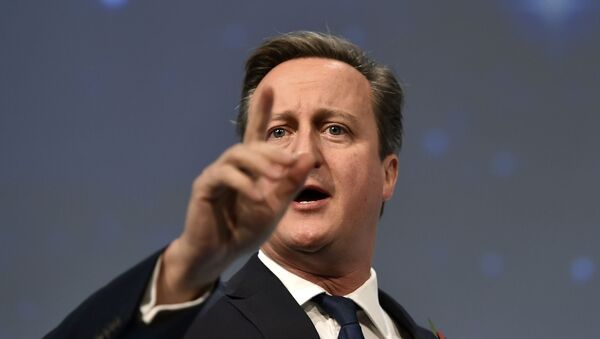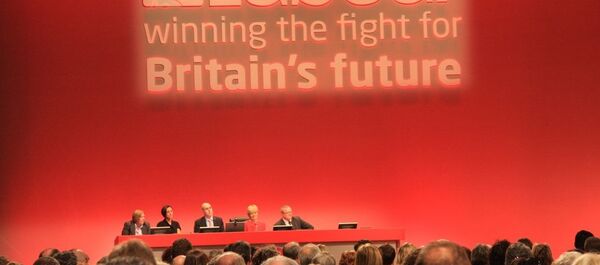MOSCOW (Sputnik), Anastasia Levchenko, Daria Chernyshova — On Monday, Cameron said that the parliament was expected to vote on whether London should expand its anti-IS military activities, currently limited to Iraq, on December 2.
UK to Launch Airstrikes in Syria Soon
Craig McAngus, a research fellow at the Scottish University of Stirling and the Centre on Constitutional Change, believes that Cameron feels pretty certain right now that the Royal Air Force will commence air strikes in Syria pretty soon.
"There will be a fairly comfortable majority in favor of the airstrikes – something in the range of 50 to 100 votes," McAngus told Sputnik.
He added that although a few of the Conservative members of parliament are likely to be skeptical, the proposal would pass due to Labour support.
Gordon Wilson, an analyst, who served as leader of the Scottish National Party (SNP) party from 1979 to 1990, agrees that Cameron will secure the necessary amount of Labour votes.
"It looks like enough of Labour people will vote in favour [of the airstrikes]. If the government thought they are going to lose it, they wouldn’t ask for a vote,” Wilson told Sputnik.
According to Wilson, although the SNP fully opposes military action in Syria, it will not be enough to tip the balance of votes.
“The SNP of course is a big block of MPs, but 54 is still a minority share,” he pointed out.
Former member of the UK parliament Mike Hancock estimates that some 60 or more Labour will support Cameron.
"Cameron will end up with a majority of about 70 or 80 votes," he told Sputnik.
Results of New Campaign Doubtful
Experts believe that it will be harder for Cameron to obtain the results he desires in Syria than gaining the support of the British parliament.
"I don’t think our planes, the bombs they drop, will do anything except cost a lot of money for the British Exchequer, but will achieve very little in Syria, except to give David Cameron idea that he can be another Blair," Hancock continued.
Gordon Wilson also believes that Cameron is primarily pursuing personal ambitions in seeking engagement in Syria.
"The only reason for the [air] strike is political – to give the establishment in the United Kingdom a lot of fuel by getting involved with the others in the war," he stressed, adding that for the Syrian people the British airstrikes would not do any good.
"It’s the civilians who will suffer,” he stressed.
London has been carrying out airstrikes against IS, which is a banned organization in many countries including Russia and the United States, in Iraq since September 2014 as part of a US-led international coalition against the extremist group.



